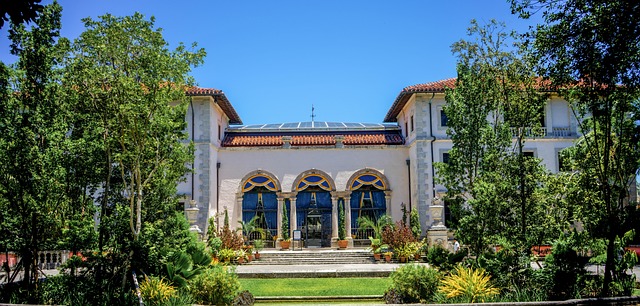In Florida, addressing elderly assault, particularly sexual abuse, is a critical issue given the state’s large aging population. Understanding the legal framework surrounding these cases is essential to ensuring justice and support for victims. This article explores key aspects, including Florida’s specific laws on elderly sexual assault, recognizing and reporting elder abuse, the vital role of an experienced elderly sexual assault lawyer, and available support resources tailored to help survivors navigate their journey towards recovery.
Understanding Elderly Sexual Assault Laws in Florida
In Florida, elderly sexual assault is taken extremely seriously, with strict laws in place to protect victims and hold perpetrators accountable. If you or a loved one are facing this sensitive issue, understanding your rights under these laws is crucial. An elderly sexual assault lawyer in Florida can provide vital guidance tailored to the specific circumstances of the case.
The state has comprehensive legislation addressing sexual abuse against seniors, recognizing the vulnerability of this demographic. These laws not only criminalize the act but also outline procedures for reporting, investigation, and potential legal remedies. Elderly victims may face unique challenges, and a skilled lawyer can navigate these complexities to ensure they receive the justice and support they deserve.
Recognizing Signs and Reporting Elder Abuse
Elderly individuals, particularly those living alone or in care facilities, are vulnerable to abuse, and sexual assault is a serious concern. Recognizing the signs of abuse is crucial for seeking timely legal assistance from an elderly sexual assault lawyer in Florida. Physical injuries, such as unexplained bruises or broken bones, are often visible indicators but should be accompanied by behavioral changes to confirm abuse.
If an elderly person exhibits unusual fear, withdrawal, or sudden changes in behavior, it could suggest they have experienced exploitation or assault. Reporting suspected cases of elder abuse is essential, and Florida has various resources available. Local authorities, adult protective services, and healthcare providers play vital roles in investigating and addressing these issues, ensuring the safety and well-being of vulnerable seniors.
The Role of an Elderly Sexual Assault Lawyer
An elderly sexual assault lawyer in Florida plays a pivotal role in advocating for justice and support for victims who are senior citizens. These specialized legal professionals have an in-depth understanding of the unique challenges faced by the elderly population, especially when it comes to sexual abuse and assault. They navigate complex legal systems to ensure that their clients’ rights are protected, providing them with the necessary tools to hold perpetrators accountable.
Elderly sexual assault lawyers in Florida offer crucial support, guidance, and representation tailored to the specific needs of older victims. They help elders navigate legal processes, understand their options, and make informed decisions. Through strategic litigation, these lawyers raise awareness about the prevalence of sexual violence against the elderly, advocating for improved policies and resources to prevent and address such crimes effectively.
Support Resources for Elderly Victims in Florida
In Florida, elderly victims of assault, including sexual assault, often face unique challenges due to their age and potential vulnerability. Fortunately, there are numerous support resources available for them. Many non-profit organizations dedicated to elder care offer legal aid, counseling, and advocacy services. These organizations work closely with local law enforcement and healthcare providers to ensure that elderly victims receive the help they need.
An elderly sexual assault lawyer in Florida can play a crucial role in navigating complex legal systems and advocating for their clients’ rights. Legal professionals specializing in this area understand the specific needs of elderly survivors and can provide specialized assistance, including assisting with criminal cases, filing civil lawsuits, and helping victims access compensation and benefits. They also offer guidance on protective orders and other legal measures to safeguard against future abuse.






